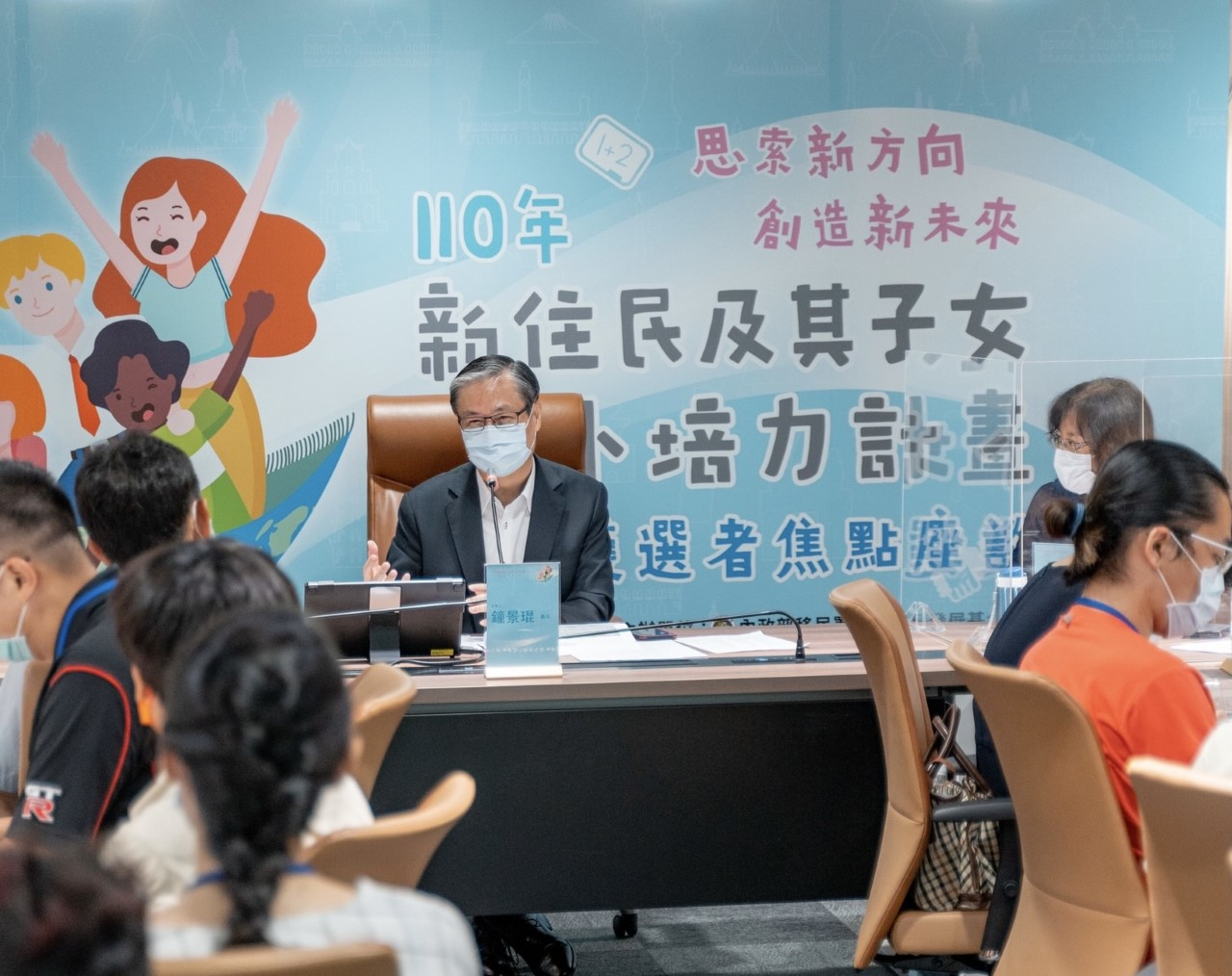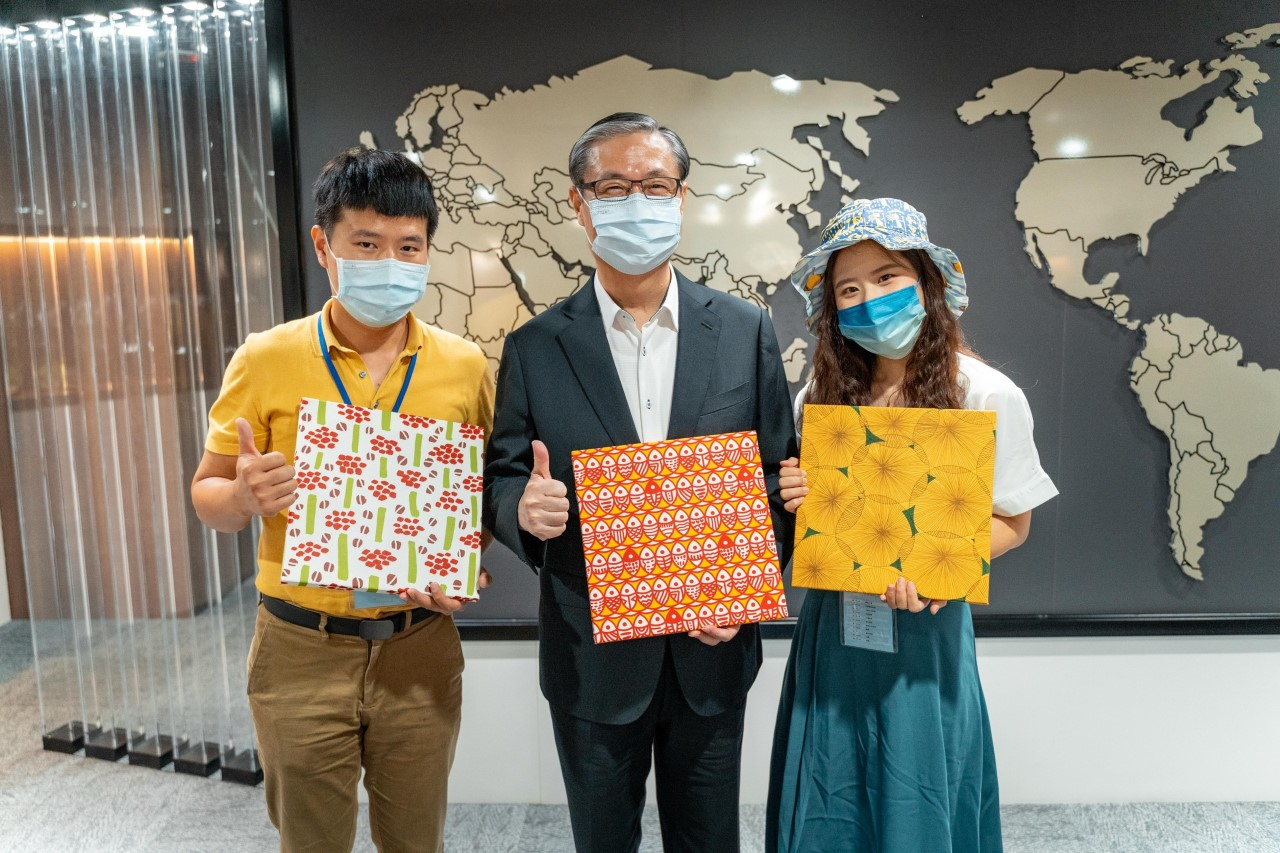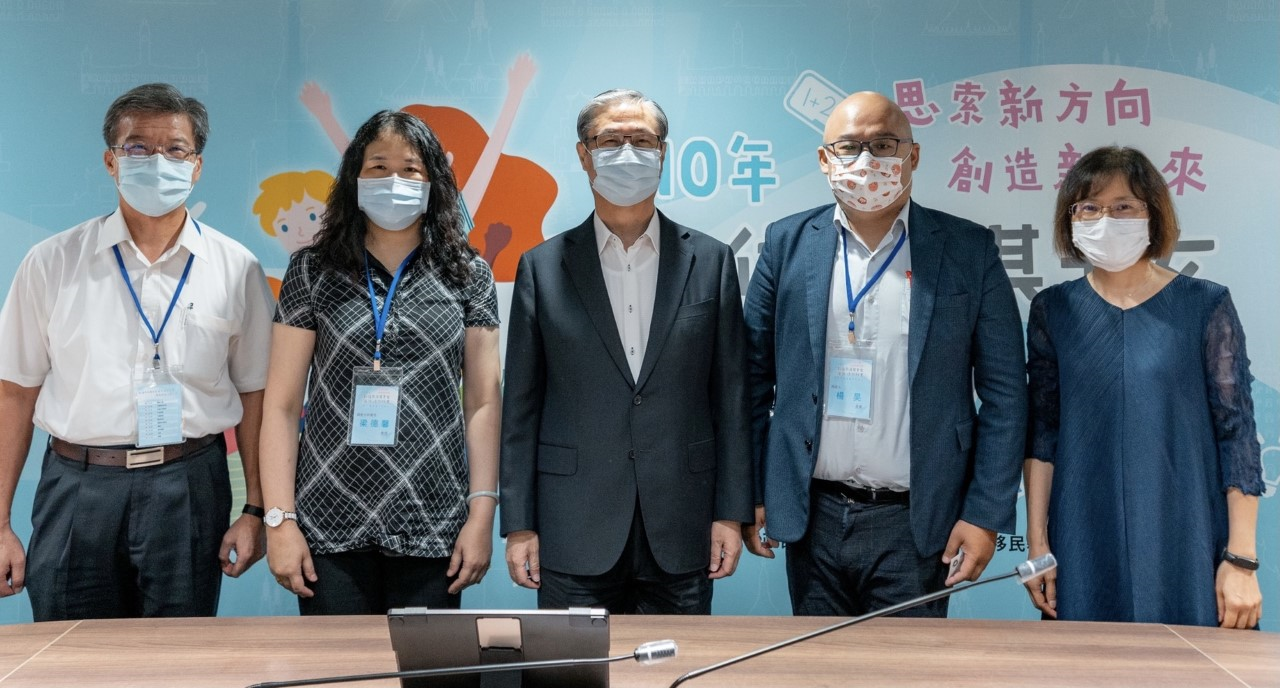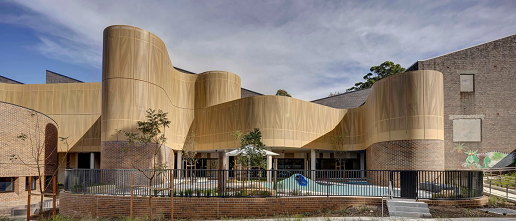To encourage new immigrants and their children to use their multicultural backgrounds and strengthen their language and cultural connections, the National Immigration Agency (NIA, 移民署) has implemented overseas training programs for seven consecutive years since 2015, and the number of beneficiaries has reached 1,056. To understand the subsequent impact of the participation of the past selected candidates, a special questionnaire survey was conducted, and past students, parents, teachers, and social workers representatives were invited to participate in the forum. In the 659 valid samples collected from the survey, more than 80% of the parents, children and teachers of the new immigrants believe that participating in the training program will help future career development, which shows that the program has achieved good results.
Improve self-identity and self-confidence

The survey found that 96.1% of the children identify with their new immigrant parents more after participating in the training program. Ms. Chen Marie (陳瑪莉), the new immigrant who attended the family group discussion, said that her son Lai Chi-Lung (賴子瓏) now understands her mother’s Thai culture more and is now willing to learn Thai. He showed more confidence in public while he participated in activities with his mother, and their parent-child interaction at home is better.
Read More: CECC approves entry of foreign students to taiwan; 14+7 days quarantine before entering campus
Enhance the willingness to learn mother tongue
Eighty percent of the children of new immigrants expressed increased willingness to learn the language of their home country, and their parents also agreed with the change in their children’s attitude. They also found that "increased willingness to learn their language" and "willingness to work in their native home country" are directly related. The current government promotes native language courses for new immigrants, and it helps to increase language learning willingness and encourages the use of different learning channels, such as more interaction with native family members, more use of their mother tongue in daily conversations, and more language learning in school, which will be of help for their work and development in the future.

Assist the New Southbound Policy
94.1% of teachers think that students are willing to “show their status as a new immigrant” after participating in this project. Mr. Tsai Chi-Yen (蔡季延), the representative of the parent-teacher group of this focus discussion, is very happy to see the growth of Wang Jui-Hao (王瑞豪) from Vietnam after he participated in the training program with his mother. After coming back to school, he did not hesitate to share his overseas training experience with his fellow students. His self-confidence and academic performance have also greatly improved. He is also proud of being a child of a new immigrant and as an average level student, he plans to apply for admission to national universities through his special talents. The teachers are also honored as they see that participating in the training program has a positive impact on teachers and students. At the same time, 78% of teachers believe that participating in this program helps the government promote the New Southbound policy.
The Director of the NIA, Chung Ching-Kun (鐘景琨), said that today’s activity is a very rich cultural exchange event. He hopes to collect valuable opinions from all sectors of society through the quantitative statistics of the survey questionnaires and qualitative analysis of focus discussions. He also sees the growth and changes of the past selected candidates, teachers, and students. The profound friendship, the selfless dedication of the social workers, and the spirit among the peers are very touching and gratifying. The relevant suggestions will be used as a reference for strengthening the effectiveness of the activity and improving the services for the new immigrants.
Read More: “Dandelion” written by Japanese author Kinoshita Junichi, who has lived in Taiwan for 40 years







